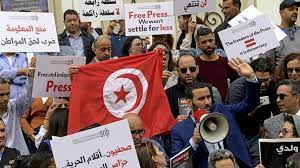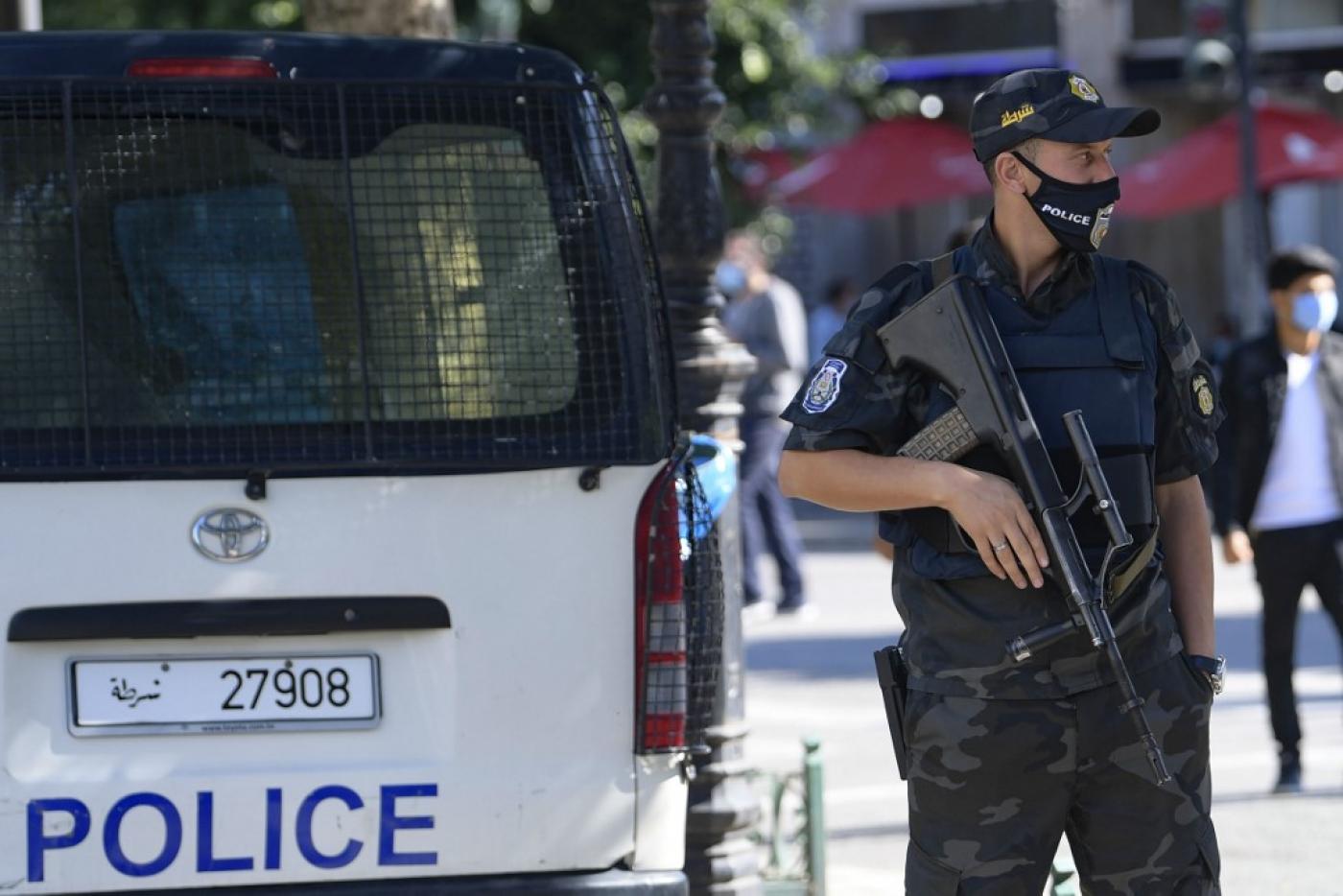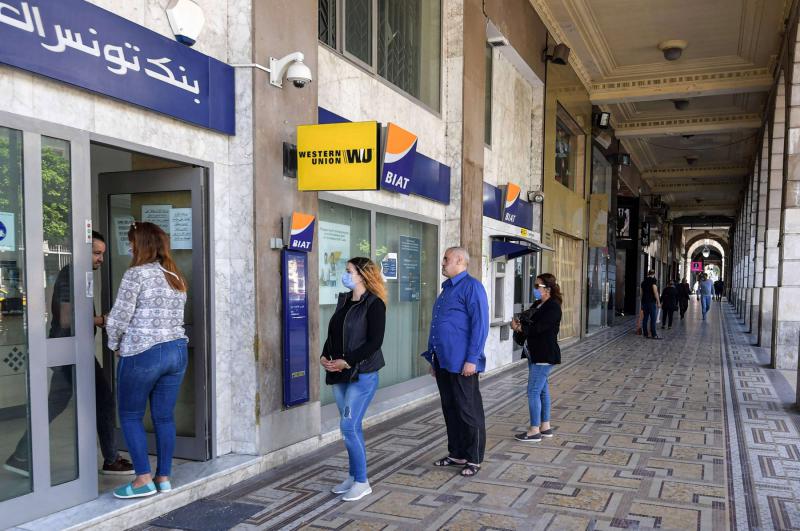Tunisian and foreign rights watchdogs warn that President Kais Saied’s actions threaten press freedom and the only democracy to emerge from the Arab Spring uprisings.
In this connection, Tunisian journalists protested on Thursday against what they say is growing repression and intimidation against the press since President Kais Saied’s power grab in July last year. The demonstration was organized by the national journalists’ union, the SNJT, which has condemned authorities’ attempts to “tame” media outlets and turn them into propaganda channels. Protesters carried signs saying “our liberty depends on freedom of the press” and shouted slogans against “repression”.
Saied, in July 2021 sacked the government and suspended parliament, and has since dissolved the assembly, ruled by decree and seized control of key state institutions including the judiciary and the electoral authority. Saied’s move initially won support from Tunisians tired of the country’s post-revolution political system, but rights groups have warned of major setbacks to freedoms in the birthplace of the 2011 Arab Spring uprisings.
The SNJT’s deputy chief, Amira Mohamed, warned of “imminent danger to press freedom” in Tunisia. “Today press freedom is genuinely threatened,” she told AFP. The SNJT earlier Thursday warned in its annual report against the use of physical violence against journalists and pressure on editors to ensure favorable coverage. It noted that Saied has not held a single open press conference since his power grab, reflecting a communications policy “that does not recognize citizens’ right to know what is happening in their country”.
Tunisia also fell 21 places in Reporters Without Borders (RSF) 2022 Press Freedom Index, from 73rd to 94th position. The organization warned that “intimidation of journalists has become normalized” in Tunisia.
Tunisian rights groups also accused the electoral authority of “threatening” press freedom after it sued bloggers and media outlets for alleged violations during a poll on a new constitution.
Last week, the Independent High Authority for Elections (ISIE) filed 24 legal complaints against media organizations and bloggers in the North African nation, accusing them of insults, “attacking the dignity of voters,” spreading false news, and receiving foreign funds. The supposed offenses took place ahead of a July vote on a new constitution boosting the powers of the presidential system, a year after Tunisian President Kais Saied staged a dramatic power grab in the birthplace of the Arab Spring.
In a joint statement on Tuesday, 28 organizations said the elections authority “targeted freedom of expression to the point where it was carrying out censorship against media organizations, in a blatant violation of the law.”
The groups – including the journalists’ union (SNJT), the Tunisian Association for Rights and Freedoms, and the Tunisian Organization Against Torture – accused ISIE of “acting like a police force censoring public opinion and the media.”
“We find it odd that ISIE was not interested in the transparency of the electoral process and ensuring a proper and free election, rather than focusing its efforts on monitoring people’s opinions, imposing censorship, prosecuting those with opinions, and threatening candidates, media outlets, and NGOs.”
The referendum, followed by a December 17 vote for a parliament, largely stripped of any power, were key milestones in Saied’s roadmap following his power grab in July last year, described as a coup and a blow to democracy.



